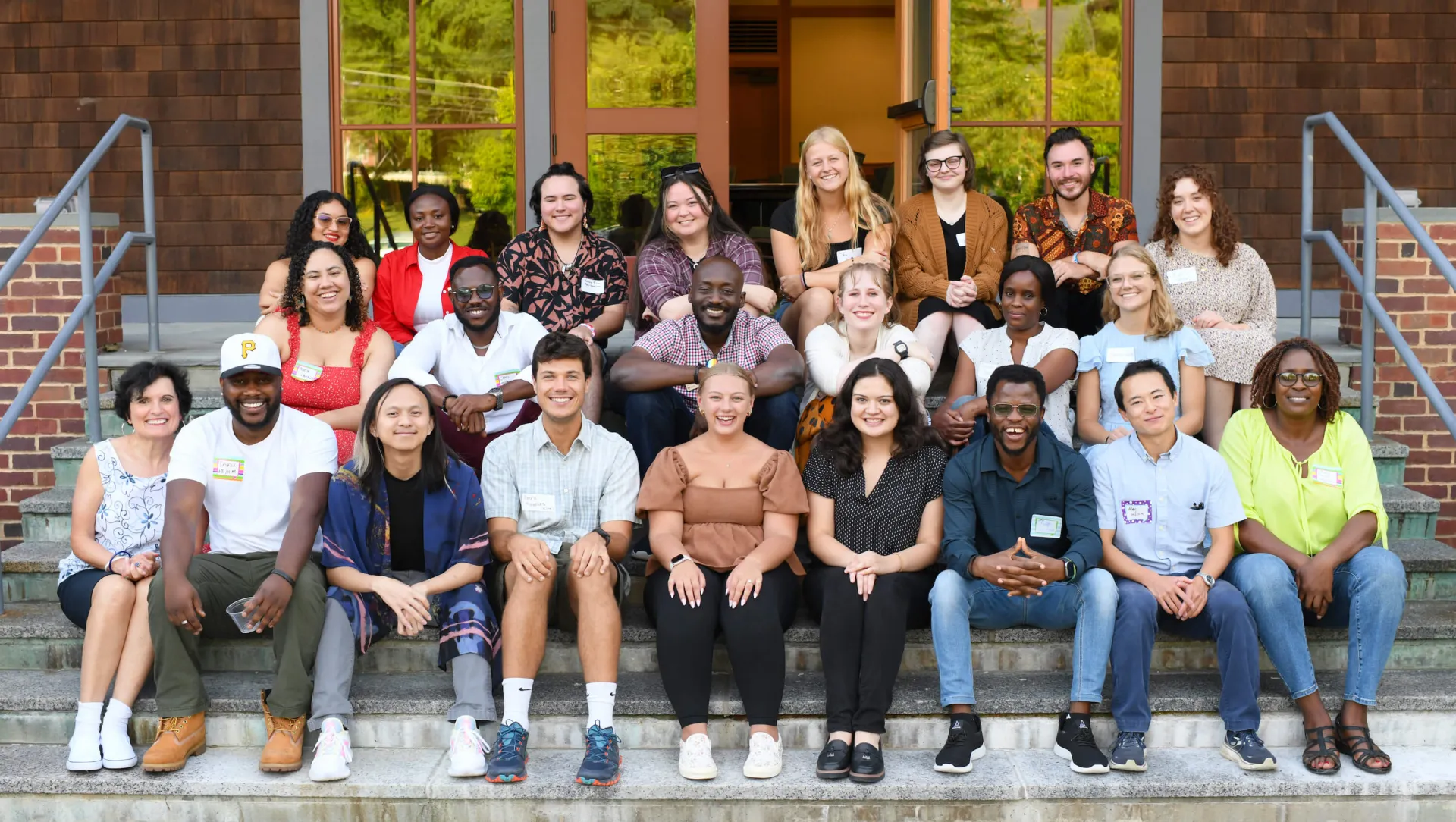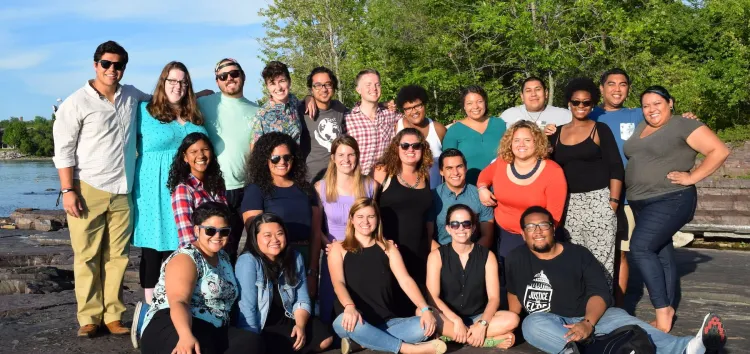Program Overview

An Unparalleled Learning Experience
UVM HESA students share a commitment to advancing higher education and student affairs through collaboration and transformative leadership. With students from various backgrounds and professional experiences, each cohort enjoys strong and enduring relationships with fellow colleagues, award-winning faculty, and campus and community partnerships.
Flexibility to Meet Your Needs
We welcome full-time and part-time students with diverse backgrounds and professional experiences into an invigorating theory-to-practice community. All HESA courses are offered either in-person or online so you can complete your degree in a way that works best for you.
Our Mission and Core Values
We develop practitioner scholars through academic and professional preparation whose commitment to reflection and justice will transform higher education and student affairs in the spirit of The Vermont Connection.
Academic and Professional Preparation: Through partnerships between faculty and student affairs professionals, we promote excellence through academic and professional rigor. We cultivate the knowledge and skills necessary for success in the profession through the synergy between classroom and experiential learning as conceptualized by philosopher and UVM alumnus John Dewey.
Justice: We are committed to pursuing justice as both a process and a goal. Grounded in the ethos of HESA, UVM, and the profession, we strive to transform student affairs for more inclusive opportunities in higher education.
Reflection: We foster reflection of self, others, and contexts as a critical component of growth in professional practice. Through critical consciousness we strive to improve higher education and student affairs with an aim toward promoting individual, institutional, and societal change.
The Vermont Connection is a collegial network of former and current students, faculty, and student affairs professionals with the shared vision of uplifting community through relationships. The spirit of The Vermont Connection weaves together the history, present, and future of UVM HESA.

Information Sessions
Meet our faculty and learn more about the program:
Attend an online information session
Building Community
An integral aspect of UVM HESA is the ongoing connection and relationships with our graduates.
The Vermont Connection (TVC) is collegial network of former and current students, faculty, and student affairs professionals with the shared vision of uplifting community through relationships.
The Vermont Connection is also the name of UVM HESA’s student-run, peer-reviewed journal and organizing body. The TVC Executive Board is responsible for overseeing journal production from start to finish. They also engage with our alumnx and strive to contribute to the professional development and community-building of UVM HESA.
Visit The Vermont Connection website.

Staying Connected
To facilitate ongoing connection with TVC, we add all graduates to the HESA alumnx listserv.
Graduates of are encouraged to engage with the UVM Alumni Association.
To update your contact and employment information in the UVM Foundation alumni database, please use the HESA Information Update Form.
Contact Us
Reach out to our Office of Graduate Student and Program Services if you have questions or need assistance.
Follow UVM HESA on Social Media